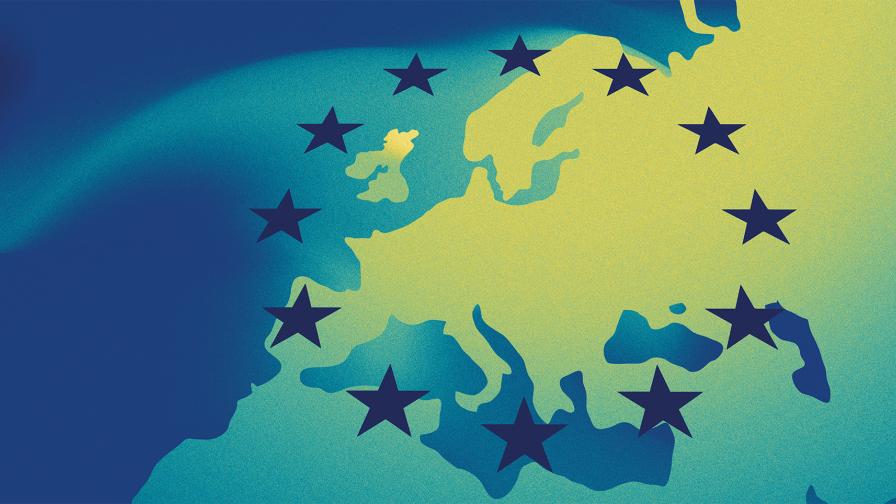
Publications
Economic analysis and policy recommendations based on rigorous academic underpinnings
Recent publications

The impact on the European Union of Ukraine’s potential future accession
This report evaluates the impact on the EU of a possible EU accession of Ukraine, focusing on economic consequences and institutional developments.

Inclusive digital economy: a round-up of project research
The rise of automation, remote employment and a diversifying workforce will necessitate a shift in how we interact with new technology

Economic arguments in favour of reducing copyright protection for generative AI inputs and outputs
The licensing of training inputs slows down economic growth compared to what it could be with competitive and high-quality GenAI

The rocky road to EU accession for Western Balkan countries: obstacles and lessons from the Eastern Partnership
The three eastern European states had practically no waiting time before being accepted as candidate countries right after application

Emerging countries have replaced most of Russia’s lost trade with advanced economies
Russian trade overall seems to have suffered little from sanctions; meanwhile, medicine and food trade continues with sanctioning countries
Publication list
Analysis
06 April 2023
China’s 2023 work report and what it means: an AI post-mortem
China is taking a more nuanced approach to the overarching goal of GDP growth.
Analysis
06 April 2023
The EU Recovery and Resilience Facility falls short against performance-based funding standards
The rules and guidance underpinning EU economic recovery funds seek inputs and outputs, not results; this has led to uneven use of results indicators
Analysis
05 April 2023
Why Europe’s critical raw materials strategy has to be international
In ensuring supplies of critical raw materials, the European Union cannot rely on domestic measures alone.
Policy brief
05 April 2023
Decentralised finance: good technology, bad finance
Given the importance of digitalisation, it is fair to ask whether these digital decentralised services will become established and normalised.
Policy brief
28 March 2023
Will China’s new financial regulatory reform be enough to meet the challenges?
This paper aims to inform the discussion in relation to China with accounts of experiences in large and complex financial sectors.
Analysis
23 March 2023
The ripple effect of financial education
A financial literacy course for university students in Cyprus also improved the financial knowledge of their parents.
Policy brief
23 March 2023
The potential of sovereign sustainability-linked bonds in the drive for net-zero
Sovereign SLBs could help incentivise climate policies in EU countries, and accelerate emission reductions.
Analysis
23 March 2023
How much will the EU pay Russia for fossil fuels over the next 12 months?
With sanctions incomplete, the European Union could pay Russia about €30 billion for fossil fuels in the next year.
Working paper
16 March 2023
Artificial intelligence adoption in the public sector: a case study
This case study illustrates the drivers of and barriers to AI adoption by organisations, and acceptance of AI by workers in the public sector.
Policy brief
16 March 2023
Phased European Union electricity market reform
In this paper, we set out a framework for evaluating the many interrelated issues in the current EU electricity market reform.
Book
14 March 2023
The future of work: a transatlantic perspective on challenges and opportunities
A compilation of research outputs from the transatlantic expert group project, in e-book format.
Analysis
14 March 2023
Collective bargaining is associated with lower income inequality
There is a negative correlation between collective bargaining coverage and inequality, but more research is needed to understand why.
Analysis
14 March 2023
A high-level view of the impact of AI on the workforce
A transatlantic study makes the right recommendations on artificial intelligence in the workplace, but work is needed to turn these into practice.
Analysis
09 March 2023
Artificial intelligence: how to get the most from the labour-productivity boost
Artificial intelligence should boost productivity over time. The boost can happen sooner, and last longer, with the right policies.
Analysis
09 March 2023
Two crises, two continents: how the labour-market impacts have differed
The US economy was more resilient against the two recent global crises, while the EU did better in terms of jobs during and after the pandemic.
Blog post
02 March 2023
The fiscal side of Europe’s energy crisis: the facts, problems and prospects
Europe needs to move beyond emergency fiscal responses and focus on structural changes to allow the EU to accelerate its decoupling from fossil fuels.
Republishing and referencing policy
Bruegel considers itself a public good and takes no institutional standpoint. Anyone is free to republish and/or quote any of our posts without prior consent. Please provide a full reference, clearly stating Bruegel and the relevant author as the source and include a prominent hyperlink to the original post.
Topics
Browse publications by topic

European governance

Energy and climate policy

Digital economy, labour markets, skills and health

Banking and capital markets

Global economy and trade policy

Inclusive economy
